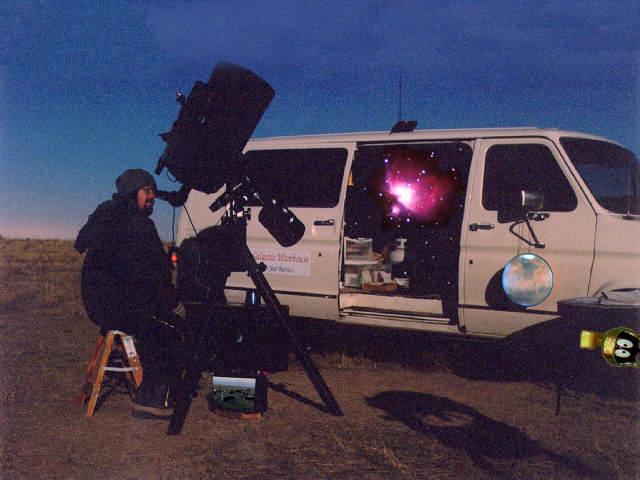
|
| Personal background |
|---|
Greetings Space fans,
Well I've gone back to college. Just finished my 2nd semester of Geology
Natural Resources) with a minor in Geographic Information Systems at Colorado
State University. I've been interested in astronomy since I was 13 and I got
a 3" reflector for Christmas.
Since then I've joined several amateur astronomy societies and have about
100 webpages under my domain. The last couple of years I've been trying my
hand at astro-photography. Northern Colorado has some of the darkest sites
in the world and the seeing is great (minus the monsoons). Even tried a couple
of times to get discretionary time on the Hubble Space Telescope to study
NGC6027, almost!
Are there any other intelligent civilizations in our galaxy? Well we
have about 200 billion stars to choose from, using the Drake's Theorem,
I would say we have a VERY good chance of someone else being out there.
The real question is, do they want to talk to us? Well, Soup's on!......
Think Cosmic!
It only takes one, ask any dinosaur!!
TomT |
| Thoughts about SETI and SETI@home |
|---|
#1 It's nice to be part of one of the largest networks in the world and it's
searching for LGMs.
#2 We have been 'broadcasting' into space for almost 100 years, first the
radio and now TV, microwave, radar, etc. We're pretty 'bright' they could
see us if they tried. So here's a little for help.
#3 I run it at home, what better way to utilized untasked processor time.
I think at the end even if we haven't found ET, we will have a good idea of
the radio wavelength architecture and the next search will be even faster!
Get more money from Congress!! |
| Your feedback on this profile |
|---|
| Recommend this profile for User of the Day: |
I like this profile |
| Alert administrators to an offensive profile: |
I do not like this profile |
|
|

